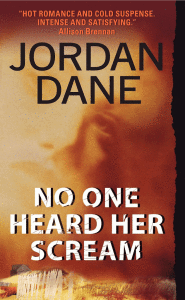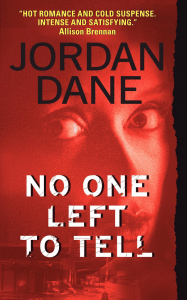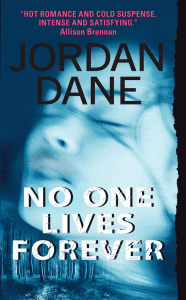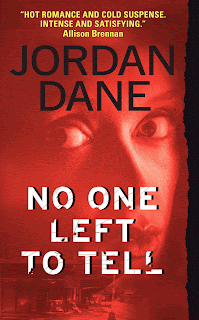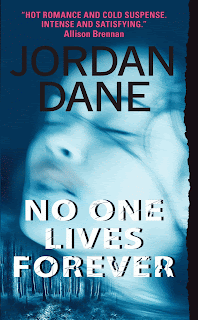Writers Tackle the Future – Just as publishing houses are trying to capitalize on the “new frontier” of ebook publishing and redefine their business models, so too are agents. Most recently, Bookends announced its intention to offer ebook services, following suit with Dystel & Goderich Literary Management. Undoubtedly more literary agencies will follow.
Can a literary agent who represents the author (in theory) also be that author’s publisher? Is there a conflict of interest in this arrangement? If you read Bookends and DGLM’s announcements (see links above), they present their case as simply a value added service their agency would offer. Existing clients who wish to navigate the new frontier (without doing it themselves) can delegate the details to their agency for their backlists, short stories to promote upcoming releases or epub works that might not be as marketable. They offer their expertise in editing, marketing, and packaging for their usual 15% fee.
Yes, that’s 15% of all book/unit sales. And since there is no “print run” on a digital novel, this could mean 15% forever if that’s not defined by contract. Authors who have looked into self-publishing know that an author can hire one or more contractors to coordinate the effort of packaging their book with formatting, editing, cover art, and uploading said book into the retail outlets who will offer the work online. They don’t have to do it themselves. (I’ve heard cost figures of $1000 – 2000 per book, but since some of you have gone through this process, please weigh in and share your experiences on costs, level of difficulty, and what you “farmed out.”) If advertising is involved, that’s something an author always has the ability to pay for and do on their own.
If that’s one alternative, that an author hires the work done by third parties, what specifically does the agent bring new to the table in this regard? Arguably, an author can hope their agency brings years of industry experience to package the best product, but beyond their opinion (which they would bring if they represented the author as agent anyway), what value can they add to improve sales without the promo dollars of a publisher’s budget (traditionally only offered to a select few authors or book projects)? What kind of promo is required for ebook sales outside what’s already made available through Amazon, Barnes & Noble, Smashwords, etc.? Yes, it would be nice to have the promo budget of James Patterson, but how realistic is that for the average author?
On top of the question of value derived for an agent’s 15% fee, who retains the rights for the work? Yes, typically the publisher would retain rights for a specified time, but if the agent is the publisher, who would be the advocate for the author if the agent representing their interest is now the publisher? And with no print run to determine when an author can ask for their rights back, how will the author ever reclaim their work? Who is protecting the rights of a new author who may not be aware of the pitfalls? Normally that might be the agent, but if they are now the publisher, who then?
Anyone can have an opinion about this. Realtor’s have laws regarding their representation conduct, for example. I worked in the energy industry where third party energy marketing arms had to be totally separate on paper and physically housed apart from its affiliate, the regulated utility. Operating practices had to be auditable and employees had to sign ethics agreements annually that could be grounds for termination if this code of conduct was violated. Enron became the prime example of conflict of interest that defined many of the laws that are in place today.
If this trend continues where agents become publishers, I see much harder issues ahead on contract terms, sub-rights negotiations, fiduciary obligations, and better conflict of interest policies where ebooks are concerned—and AAR must weigh in with specifics since it’s obviously not clear. In the ever evolving world of ebooks, agents becoming publishers is another strange twist. Is this the shape of things to come—another nail in the coffin of traditional publishers—or merely literary agencies struggling to be relevant in a new age?
I’ve had talks with my agent and we’ve addressed strategies going forward. We both see ebooks as a new opportunity for authors, but we recognize that the way deals are negotiated now, that will most likely change. New questions must be explored open-mindedly—for example:
1.) What’s a fair ebook royalty rate? Is 50% a more acceptable industry standard or should it be subject to negotiation deal to deal?
2.) Can a book deal be done where an author retains ebook rights to be leveraged by an agent? Would 15% agent fee be warranted then?
3.) When can an author get rights back in a digital world—from a publisher or an agent?
4.) Should any publisher get only a limited time period to said rights? If so, what royalty value would that have and is the term of the arrangement variable and negotiable?
With the future changing as fast as it is, agents can still add value and provide a real service with regard to foreign sales, audio, film and negotiating print rights on ebooks. I’ve never been much of an advocate for an agent editing a book before an editor gets their input. I hire an agent to be my advocate and negotiator. I don’t want their attention focused on a multitude of revisions with their clients that dilutes their effectiveness in the marketplace, which should be their primary concern. Some agents give editing advice as part of their representation deal, without charging a fee. Below is article 8 of the Association of Author’s Representatives (AAR) Canon of Ethics.
“The AAR believes that the practice of literary agents charging clients or potential clients for reading and evaluating literary works (including outlines, proposals, and partial or complete manuscripts) is subject to serious abuse that reflects adversely on our profession. For that reason, members may not charge clients or potential clients for reading and evaluating literary works and may not benefit, directly or indirectly, from the charging for such services by any other person or entity. The term ‘charge’ in the previous sentence includes any request for payment other than to cover the actual cost of returning materials.”
According to their announcement, Bookends explains that their 15% fee provides their editing expertise as a part of the package. “For the work we are doing with them we are getting paid a 15% commission… we also provide revisions and edits for those books that might not have been published before.” How is this different than a vanity press? And how is this in keeping with AAR’s Canon of Ethics as stated above?
Bookends and DGLM’s announcements justify their 15% agent fee with a list of services that can easily be obtained elsewhere by third parties who aren’t also charged with advocacy on the author’s behalf. In an effort to sound forward thinking, these agencies are ignoring the potential for conflict of interest and undermining the relationships they already have with publishers by competing with them.
Another concern I have are the people querying agent/publishers who are desperate to be represented. If Bookends, DGLM or other agents, find a marginal book that would be a tough sale to a traditional house, they can “offer their services” and take money from people who don’t know better. The countless folks in a slush pile become a gold mine, the gift that keeps on giving. And if there is no a delineation in who offers these services—with a definitive separation of companies—an agent’s existing author clients could get ignored because an agent is too busy cashing in on people bent on being “represented” by a real agent.
On the subject of conflict of interest, agent Jessica Faust in a comment to her Bookends blog post stated, “My feeling is that whether or not it truly is a conflict of interest comes down to how a situation is handled by the agent, and in many ways, that’s for the agent and the agent’s clients to determine.”
What do you think? Should a conflict of interest be done by consensus between an agent and client? Or should more definitive guidelines be established by more objective parties, without a personal stake in the answer?




